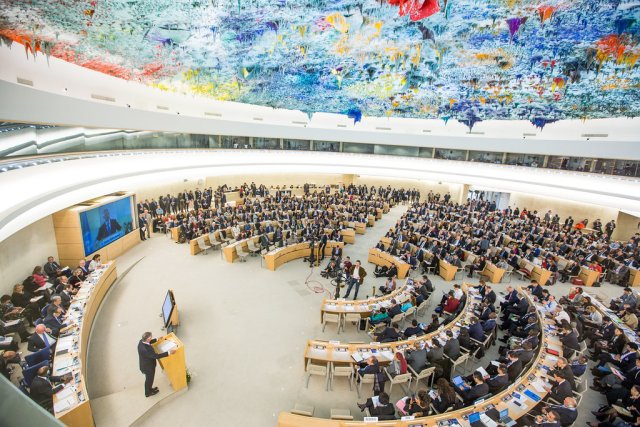Following the request of the Human Rights Council (HRC), the Office of the United Nations High Commissioner for Human Rights organised a workshop to discuss “practical ways to further enhance and strengthen” the work of this body “in promoting and protecting economic, social and cultural rights within the context of addressing inequalities”. [1]
CETIM participated in this workshop and made several contributions. In our statements [2], we highlighted, among others, the challenges in establishing economic, social and cultural rights (ESCR): foreign debt, structural adjustment programmes, the privatisation of public services, the increase in military spending at the detriment of social spending (public health, education, social housing, etc.).
When the workshop report was presented to the 54th session of the UNHRC [3], we were surprised by the High Commissioner for Human Rights’ statement which referred to its team’s lack of skill with regards to the ESCR.75 years after the adoption of the Universal Declaration of Human Rights and 57 years after the International Covenant on Economic, Social and Cultural Rights, we have difficulty believing that the High Commissioner for Human Rights is not equipped with competent personnel. Could their declaration be linked to the fact that the western states voted in unison against the resolution that would allow this workshop to take place? However, these states “made up for lost time” by joining the consensus [4] on the ESCR resolution presented by China at the end of the 54th session of the HRC [5].
This landmark resolution commits member states to not prioritise or privilege certain human rights over others, given that “all human rights are universal, indivisible, interrelated and interdependent, and mutually reinforcing and must be treated in a fair and equal manner”. The member states recognise that “inequalities and discrimination affect the enjoyment and realisation of ESCR rights, including the right to development, and are inconsistent with the principles enshrined in the Universal Declaration of Human Rights that all human beings are born free and equal in dignity and rights”. The member states also recognise “the contribution of human rights education and training to the promotion of inclusive and tolerant societies”.
While reminding the High Commissioner of its mandate “to promote and protect the effective enjoyment by all of ESCR rights”, the UNHCR calls on member states to invest “in public health systems, education, social protection, decent work, housing, food, water and sanitation systems, including to respond effectively to global challenges”. It also requests that they “enhance their ongoing efforts” for “the full, equal and effective enjoyment of these rights by persons in marginalised or vulnerable situations”.
CETIM has been committed to the promotion and protection of the ESCR for decades and will closely follow the evolution of this resolution. Our association has just published a book on these rights (see page 8 of this bulletin).




